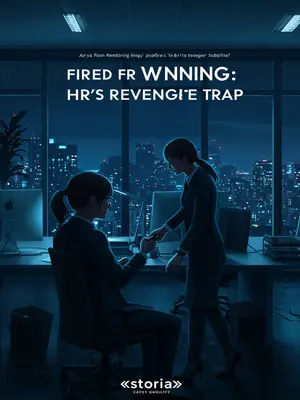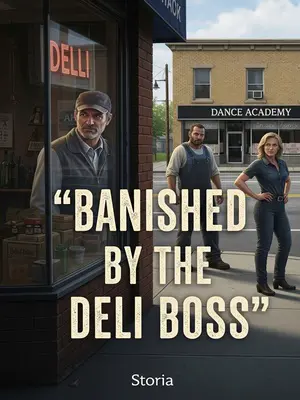Chapter 5: The Dominoes Fall
This incident made me realize something.
Jason had shifted blame to Sarah, and she was indeed careless. Anyone entering the factory still needed their ID checked.
Before, the temp agency handled the checks and sent info to HR, who barely had to lift a finger.
So this time, they didn’t think much—just waited for the agency to send the info.
But at this critical moment, disaster struck.
The Product Manager came by after Sarah left. He looked worried about quality issues and talked about job-hunting.
I joked, "Don’t worry, maybe the next unlucky one won’t be you."
He managed a weak grin, glancing around like the walls might be listening. I knew he didn’t believe it.
Before I could say more, the boss’s shouting echoed from his office.
"Where were you earlier? $10,000—are you going to pay that?"
The whole office froze. The Product Manager rushed off to watch the drama unfold.
You could hear a pin drop. Even Melissa stopped typing. It was like a scene from The Office, only with real consequences.
Soon, Bob from Logistics came out, looking wrecked.
Bob and I got along—he was a bit slick, but solid.
He looked like he’d pulled an all-nighter in the warehouse—shirt wrinkled, eyes bloodshot.
I was about to ask Melissa, our "company intelligence center," what happened, but Bob came straight to my office.
He shut the door and started cursing Jason.
I figured it was about logistics costs going up, and Bob got yelled at for asking the boss to sign off.
Sure enough, Bob ranted:
"I told Jason ages ago to book containers early and gave him the quotes, but he insisted on finding cheaper ones himself. Doesn’t he know there’s a shipping crisis in the Red Sea? Of course, shipping costs are through the roof."
He looked exhausted, like he’d just spent the night in the warehouse. I poured him a cup of burnt office coffee—the kind that tastes like regret.
"Don’t worry, as long as we get containers, it’s fine if it’s expensive."
"That’s the thing. He shopped around, and the cost was double what I found. I thought, fine, as long as we can ship. But then he told me to ask the original forwarder to keep the old price. They refused. After days of back-and-forth, the crisis got worse, ships detoured around Africa, and suddenly there were no containers at all."
Unbelievable. In this situation, you book as soon as you can, but he still tried to haggle.
Director Wilson was still in Europe, calling to push for shipment. We were already a week late. If we didn’t ship soon, we’d be fined 10% of the payment, and future deals were at risk.
In the end, we had to use air freight.
The goods were worth about $20,000, shipping cost us $10,000.
Jason told Wilson, "Why not just wait? The penalty’s only $2,000, that’s $8,000 less than air freight."
Wilson snapped, "If you were here, I’d slap you. Are you trying to make sure they never order from us again?"
"It’s not my fault. Blame the shipping crisis. Besides, why didn’t you sign FCA back then? Why did you sign DDU?"
All I could hear was Wilson cursing on the other end.
Exactly—blame Sarah for the intern mess, blame the shipping crisis for logistics, next time maybe blame the weather. Jason is never at fault.
Ironically, Jason’s logic was almost right. Because of this shipment, the company took a huge loss—far more than the value of the goods.
But that’s another story.













